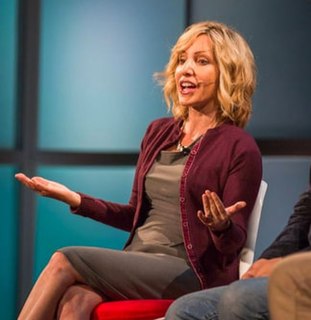A Quote by Michael Robotham
I wasn't always a novelist. I began my writing career as a journalist, working on an afternoon newspaper in Sydney, Australia, doing the crime beat and court reporting. Having grown up in a small country town, I felt as though I had nothing to write about.
Related Quotes
The professions of novelist and journalist are very separate. As a novelist, you are ultimately working for yourself. Yes, you need the approval of a publisher and an audience, but what is valued in fiction writing - style, individual voice, insight - is scorned by the editor who is combing through your newspaper article.
I never intended to have a career as a journalist, writing about people who make movies. I did it as something that was really rewarding to do, given the opportunity to express myself about something I cared about, and also to learn a lot by watching filmmakers I admired. In a sense, it was my film school. After doing it for a few years, I decided that the time had come to get it together and do some work of my own. Even for a cheap movie, you need film stock and equipment and actors. Whereas to write, all you need is paper and an idea, so I felt that writing might be my stepping stone.
Many novelists say, "I'm not a political novelist" - myself included. That's a standard, even a default position. Whereas that divide between art and politics simply isn't possible in many countries. In Hungary, you couldn't be a fiction writer and then, when asked about politics, put your hands up in the air and say "But I'm not a political novelist." If you're a Chinese novelist, a novelist in a country where censorship is such an issue, how do you claim that politics has nothing to do with your writing? It's in your writing, it's shaping your words.
I read John Irving's novel 'The World According To Garp' when I was about 14 or 15. It was the first grown-up book that I had read. It is the story of a young man who grows up to be a novelist. I finished it, and I wanted to write a book that made the reader feel the way I felt at the end of that, which was sort of both bereft and elated.
I'm a small-time white kid trying to represent hip-hop. If a hip-hop artist comes up and beats me in a battle, who did they beat? A small-town white kid who ain't never been an MC, who ain't never done nothing. Now if an MC comes to battle and they get beat by a small-town white boy, that's MC suicide.
I reluctantly signed up for a journalism major, thinking I needed a fall-back way to make money should my career as a novelist fail to take off. As I started to try on journalism, including doing internships and working at the campus paper, I found I actually liked it. So I started to want to be a journalist.
Despite being from Ireland, I've always avoided writing about it, for two reasons. For a very small country, Ireland has produced an astonishing number of literary geniuses, and at some level I probably never felt, having left as a toddler, that I had the right to try and add my voice. That's part of it. But I also didn't want to write something that was the equivalent of the Irish theme pub. You find them all over the world. The idea of producing a novel that might replicate that type of ersatz really set my teeth on edge.






































